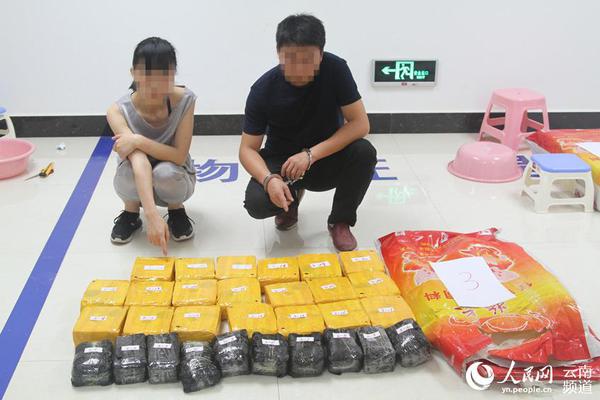A newly released Secret Service document confirms that U.S. law enforcement has been purchasing phone location data gathered from popular apps — soundly circumventing the need for a warrant.
Obtained by Motherboard through a Freedom of Information Act request,Dear Utol (2025): Aswang Episode 30 the 2017 contract shows the Secret Service bought a product called Locate X from Virginian social media surveillance company Babel Street. Locate X is able to track a cell phone's movements using anonymised location data collected by various apps, and is so secretive that its mere existence is confidential information.
Using Locate X, the Secret Service could identify devices that were in a specified area during a specified time, and track their movements months before and after that event. Simply follow that trail to a house and presto, that anonymous data is anonymous no more.
According to the internal document, the Secret Service paid almost $36,000 for a one-year subscription to the service running from Sept. 27, 2017 to 2018 — part of approximately $2 million paid to Babel Street for social media surveillance products. Protocol reported in March that federal records showed Locate X was being used by U.S. Customs and Border Patrol, but this is the first official confirmation that it has also been utilised by the Secret Service.
This revelation has significant implications. Usually law enforcement would need to obtain a warrant or court order to gather this kind of information on people's movements. Now it seems they're simply buying it, literally paying to bypass the judicial system.
"It is clear that multiple federal agencies have turned to purchasing Americans’ data to buy their way around Americans’ Fourth Amendment Rights," Senator Ron Wyden told Motherboard, referring to the constitutional protection against unreasonable searches. Wyden said he is drafting legislation to prevent this from continuing.
It isn't uncommon for apps to suck up users' data even when their functions don't strictly require it, often onselling that data to third parties to use for their own purposes. This is already an unsettling practice at the best of times, but it becomes even more disturbing when law enforcement exploits it to dodge the law.
The U.S. has kicked up a big fuss about security these past few weeks, loudly accusing apps such as TikTok of sharing user data to the Chinese government. We already knew Facebook and Twitter share user data with the U.S. government, but America's finger-pointing looks even more hypocritical than usual today.
Topics Cybersecurity Privacy
(Editor: {typename type="name"/})
 NYT Connections Sports Edition hints and answers for April 17: Tips to solve Connections #206
NYT Connections Sports Edition hints and answers for April 17: Tips to solve Connections #206
 PayPal to allow customers to buy and sell Bitcoin, Ethereum, and other cryptocurrencies
PayPal to allow customers to buy and sell Bitcoin, Ethereum, and other cryptocurrencies
 'Borat Subsequent Moviefilm' can't shock us anymore: Review
'Borat Subsequent Moviefilm' can't shock us anymore: Review
 'Fast and Furious' franchise will cross the finish line with 11th film
'Fast and Furious' franchise will cross the finish line with 11th film
 What cracked the Milky Way's giant cosmic bone? Scientists think they know.
What cracked the Milky Way's giant cosmic bone? Scientists think they know.
One of Android's Easter Eggs is a Flappy Bird
Trump only wants positive news about him, thanks
 Before former White House Chief of Staff Reince Priebus and former White House Press Secretary Sean
...[Details]
Before former White House Chief of Staff Reince Priebus and former White House Press Secretary Sean
...[Details]
A guide to Vladimir Putin's undeniable masculinity
 Behold, it is Vladimir Putin, in all his glory.You may know Putin as the President of Russia. But he
...[Details]
Behold, it is Vladimir Putin, in all his glory.You may know Putin as the President of Russia. But he
...[Details]
We've got the sweet little notes Gen. Kelly tucks into Trump's lunchbox every day
 President Trump is only human: he needs inspo just like the rest of us. A new report by VICE alleges
...[Details]
President Trump is only human: he needs inspo just like the rest of us. A new report by VICE alleges
...[Details]
Best robot vacuum deal: Get the Roborock Q5 Max for 53% off at Amazon
 SAVE $320: As of May 8, get the Roborock Q5 Max+ for $279.99, down from its usual price of $599.99 a
...[Details]
SAVE $320: As of May 8, get the Roborock Q5 Max+ for $279.99, down from its usual price of $599.99 a
...[Details]
The ad industry is still hilariously corrupt, report says
 Ad agencies are using smoke-and-mirror tricks to drive up production costs on their clients' dime, a
...[Details]
Ad agencies are using smoke-and-mirror tricks to drive up production costs on their clients' dime, a
...[Details]
Lucasfilm's 'Willow' is set for a Disney+ series with Warwick Davis
 Willow is ready for his comeback, and he'll have some support from Jon M. Chu.The Crazy Rich Asiansd
...[Details]
Willow is ready for his comeback, and he'll have some support from Jon M. Chu.The Crazy Rich Asiansd
...[Details]
Joe Scarborough announces millennials' latest victim: the military
 Millennials, a rowdy band of murderers responsible for killing everything from focus groups to lunch
...[Details]
Millennials, a rowdy band of murderers responsible for killing everything from focus groups to lunch
...[Details]
Every MCU movie villain ranked, from "Iron Man" to "Thunderbolts*"
 It's funny to look back on the MCU and realize these tales of epic heroism began with a spoiled nepo
...[Details]
It's funny to look back on the MCU and realize these tales of epic heroism began with a spoiled nepo
...[Details]
Trump trolled with Putin projection and 'Russian soldiers' at his SoHo building
 The Trump SoHo building in New York City saw quite the light display Monday night. SEE ALSO:
...[Details]
The Trump SoHo building in New York City saw quite the light display Monday night. SEE ALSO:
...[Details]
Trump signs AI education order to train K

Happily never after: Why more romantic comedies need to embrace 'ending up' alone

接受PR>=1、BR>=1,流量相当,内容相关类链接。